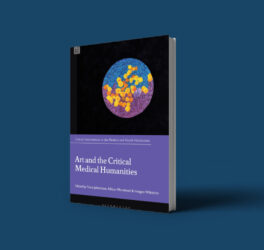
New research from the Institute of Psychiatry, Psychology & Neuroscience (IoPPN) at King’s College London has explored the health experiences of people with Down Syndrome in an effort to better understand how the specific needs of people living with the condition compare to people with other forms of intellectual disability.
The report, published in the Lancet Public Health, is the first of it’s kind to research multiple morbidity across the lifespan in people with Down Syndrome. Researchers hope that this will help to ensure people living with the syndrome have access to the correct monitoring, support and treatment for health conditions at the right ages.
Previous research has found that people with Down syndrome die 28 years younger than the general population, with many of these deaths being from avoidable causes that can be reduced with better healthcare.
Using information sourced from GP practices in the UK, researchers compared the health records of 10,204 people with DS to 69,150 people with ID and 39,814 members of the general population acting as the control.
Researchers found that people with DS had an increased risk of dementia, hypothyroidism, epilepsy and haematological malignancy (cancers that begin in blood forming tissue) compared to people with other intellectual disabilities, but were less at risk of asthma, cancer (solid tumour), ischemic heart disease and particularly hypertension.
“The results of this analysis provide health professionals with a more detailed understanding of the health needs of people with Down syndrome, and those with an intellectual disability, which will help to target care for these groups to reduce inequalities.”– Professor André Strydom, Professor in Intellectual Disabilities at King’s IoPPN and the study’s senior author
The study also found that people with Down syndrome who have one health condition are more likely to have certain other conditions. For example, people who are obese are also more likely to have obstructive sleep apnoea, dementia, and thyroid problems, while those who had one cardiovascular disease were more likely to also have another such as ischaemic heart disease or stroke.
“The passing of the Down Syndrome Act in April 2022 was a major achievement for the DS community. As policies connected to this Act continue to be developed, the findings of this study will be important to help shape initiatives that could help to improve the health of people with Down syndrome so that they can live healthier and longer lives.”– Dr Asaad Baksh, one of the first authors from King’s IoPPN and the South London and Maudsley NHS Foundation Trust
This study was possible thanks to funding from The European Union’s Horizon 2020 research and innovation program, the Jérôme Lejeune Foundation and Alzheimer’s society.
Multiple morbidity across the lifespan in people with Down syndrome or intellectual disability: Population-based cohort study using electronic health records (DOI10.1016/S2468-2667(23)00057-9 ) (R. Asaad Baksh, Sarah E. Pape, Li F. Chan, Aisha A. Aslam, Martin C. Gulliford, & Andre Strydom) was published in Lancet Public Health.








